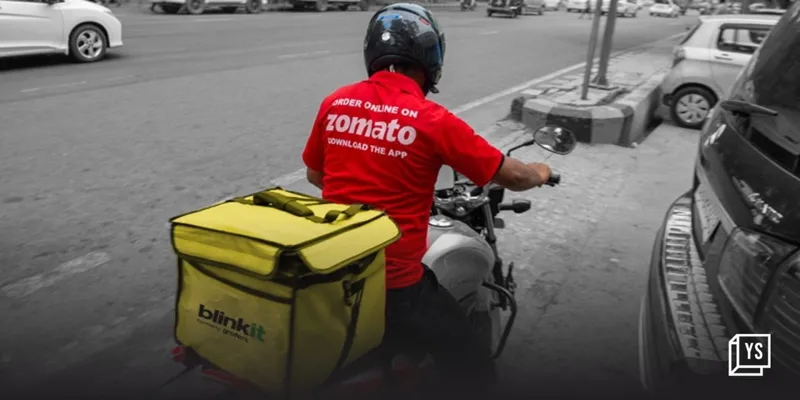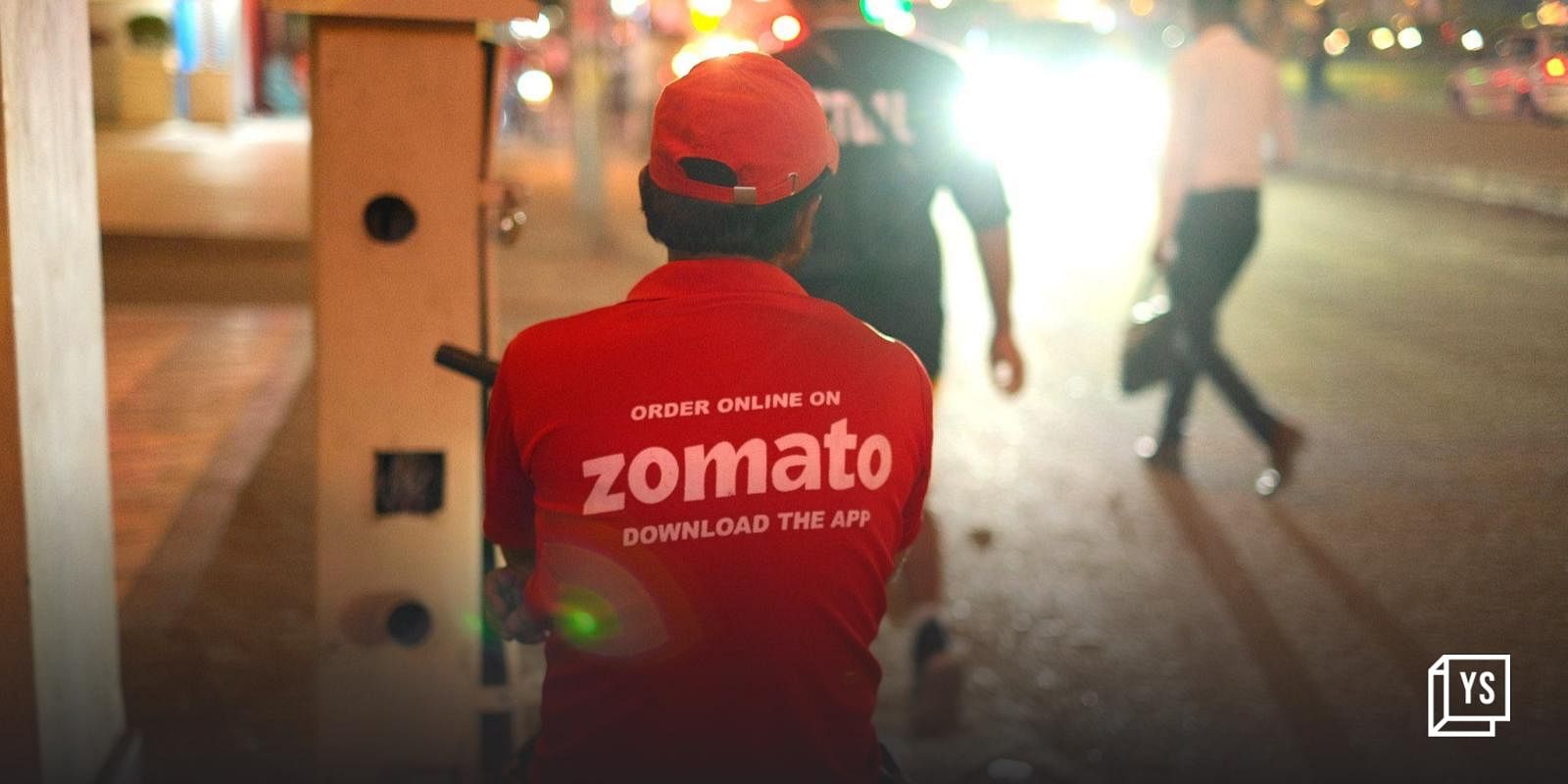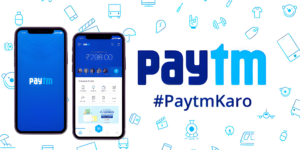, in addition to recently increasing commissions on food-delivery orders, is pushing restaurants to spend more, including by advertising on the platform and bearing the cost of cancellations.
The food-delivery company is approaching eateries to increase their marketing expenditure on the platform, according to three people familiar with discussions involving Zomato.
Some restaurant owners YourStory spoke with said they are being nudged to spend at least 5% of their revenue generated on Zomato towards ads on the platform for improving their visibility. YourStory has seen a copy of the email sent to a few restaurant brands recommending that they bump up their ad spending on Zomato.
“I was told that if I paid more for advertising, I would get better visibility and my position on the app would jump significantly,” said one restaurant partner on condition of anonymity. “It essentially meant that brands that don’t spend at least 5% of their revenues would suffer in terms of prominence.”
Advertising through the cost-per-click method helps restaurants be more visible at the top of the search page on the app. Zomato also allows brands to advertise through dynamic videos and banner listings. At present, it is optional for restaurants to pay for ads. It was not immediately clear how much Zomato earns through ads on the platform.
Zomato’s battle with its restaurant partners will likely intensify over the next few months as the company doubles down on profitability and seeks to reverse declines in its food-delivery business.
Zomato’s recommendation to restaurants to spend a minimum amount on advertising on the platform is another way of arm-twisting brands, said another restauranteur asking not to be identified. “Zomato is asserting its dominant position to make unreasonable demands.”
Spending on ads should be at the discretion of the restaurant, depending on its target audience, geography, and bandwidth to fulfil online orders, this person said.
“No policy mandates marketing spends on our app for restaurant partners,” a Zomato spokesperson said in response to queries from YourStory.
“That said, we have policies in place for underperforming restaurants that require additional support (e.g. the ones who mix up the most amount of veg/non-veg orders, have recurring hygiene and quality issues, etc) on the platform so that the minimum viable customer experience for our customers stays intact. There’s nothing new behind this exercise,” the spokesperson said.
Some restaurant partners said Zomato has also asked them to lower their online prices to match what they charge at their regular restaurants. Restaurants typically charge higher on food-delivery platforms to compensate for discounts and other charges levied from them.

Inconvenience charge
Zomato typically bears the cost of refunds arising from order cancellations, which accounts for less than 10% of all its orders, unless in the case of repeated quality issues or if a restaurant cancels an order.
Now, Zomato is asking some restaurants to bear cancellation and customer support charges, according to two of the three people mentioned above. It is not clear if these restaurants have poor ratings or have shown genuine quality problems.
In 2021, restaurants voiced concerns about being penalised for order cancellations under a new set of terms and conditions. Restaurants that did not adhere to the terms could be delisted from the platform.
Zomato replied saying that the policy had been around for eight months, and applied only to restaurants with a higher cancellation rate than the platform average and for a short period.
Restauranteurs YourStory spoke with said similar terms are likely to emerge again.
“We have addressed the matter before but did not expect it to resurface once again, especially at a time when Zomato is already thinking of hiking commissions,” said another industry executive asking not to be named.
Earlier this week, YourStory reported that Zomato was asking restaurant partners to pay higher commissions as the company navigated a slowdown in the food-delivery business and focused on profitability.
The National Restaurant Association of India (NRAI), an apex body that represents over five lakh restaurants in India, has been at loggerheads with aggregators including Zomato and Swiggy, challenging their deep discounting practices and alleged masking of data.
NRAI has also filed a complaint against the food-delivery platforms with the Competition Commission of India for anti-competitive practices.
“These sort of unilateral increases (make for) unfair trade practices and NRAI vehemently opposes it,” a spokesperson for NRAI said.
In the latest December quarter, Zomato reported a 0.1% decline in adjusted revenue from the preceding quarter, largely owing to declining order volume.
“We have seen an industry-wide slowdown in the food delivery business since late October (post the festival of Diwali). This trend has been seen across the country but more so in the top 8 cities,” CFO Akshant Goyal said in the earnings statement.










